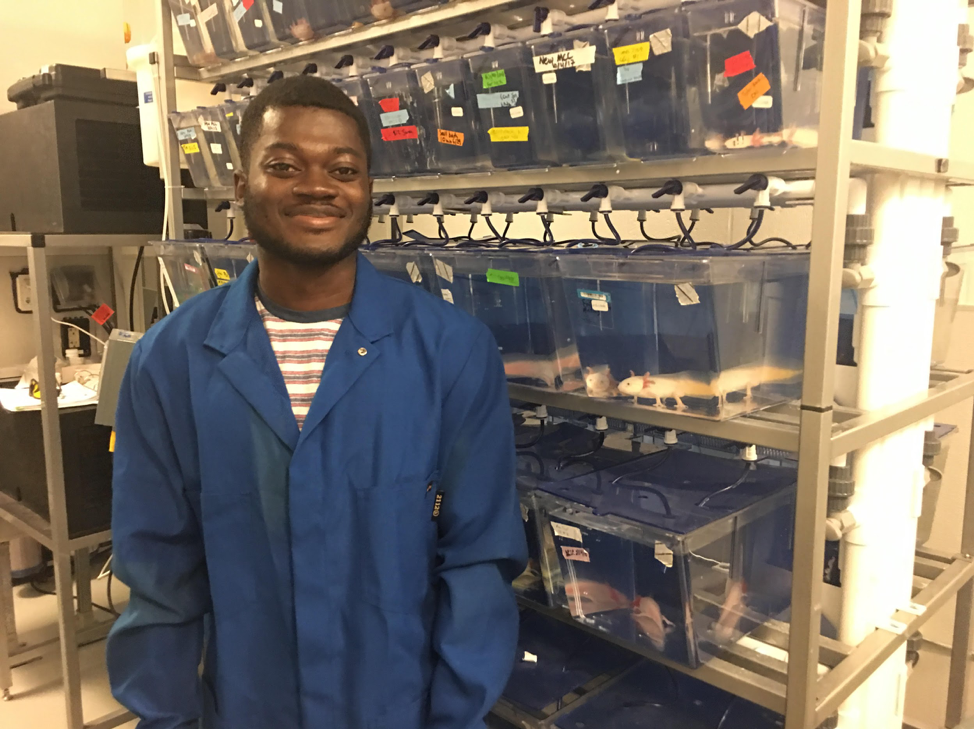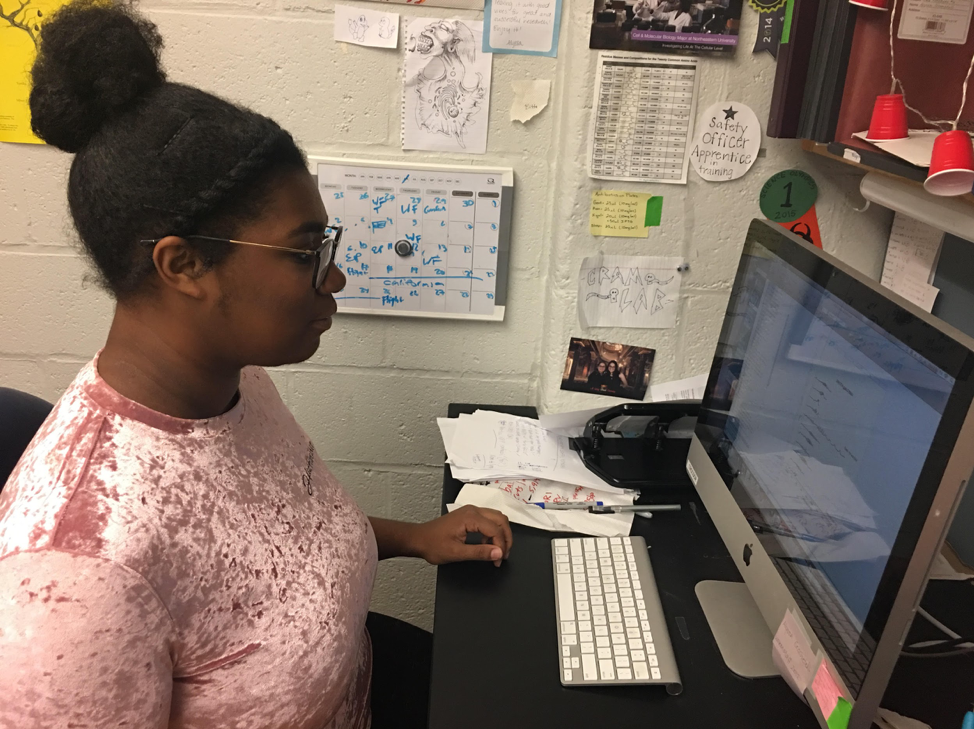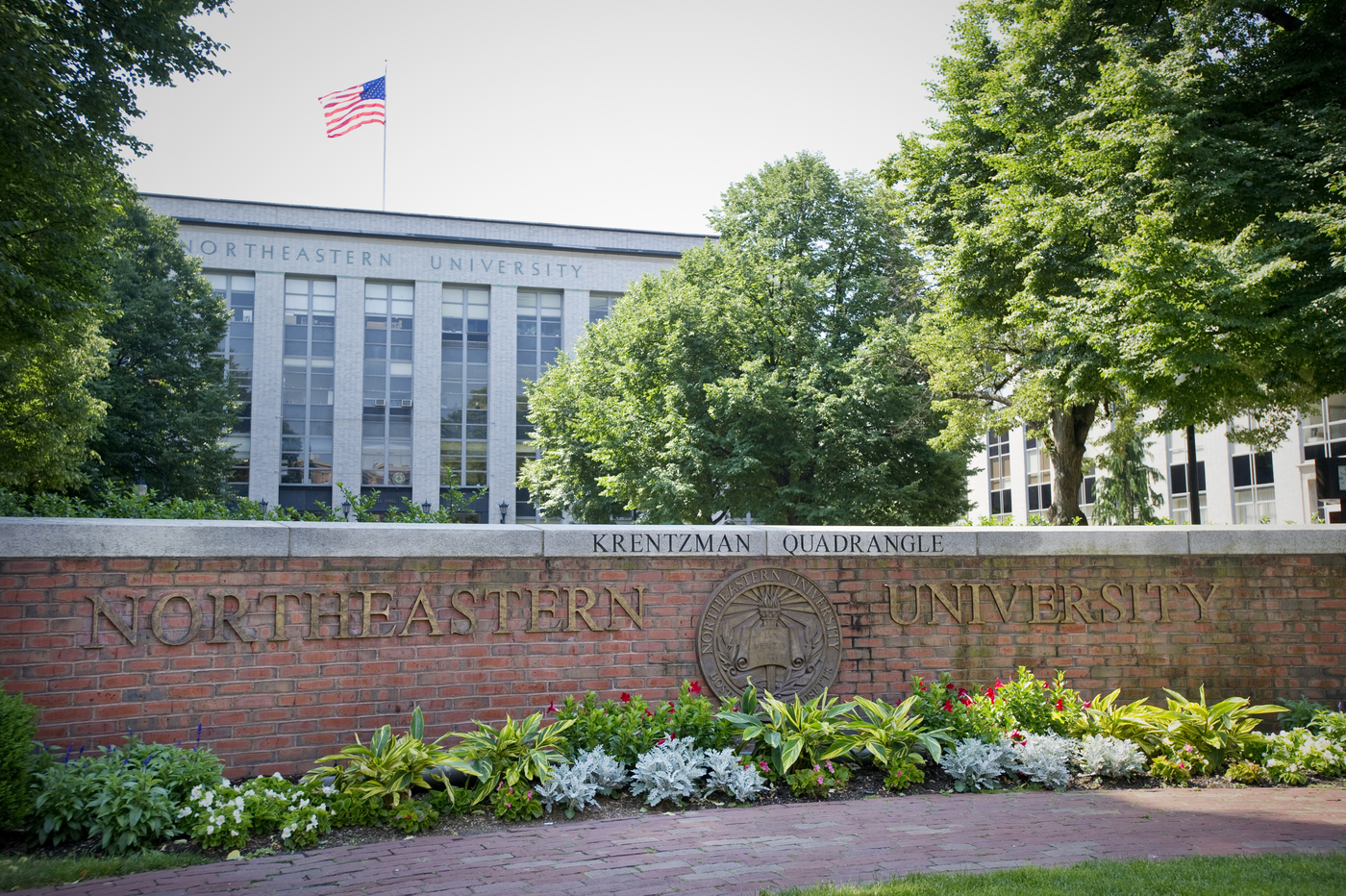Do you sometimes wish you had done more research in your undergrad? Undergraduate research experience is essential for a STEM degree, but opportunities are often hard to come by. This summer, many students have a chance to obtain this experience by working in one of Northeastern University research labs. Notably, some of them are not actually students at Northeastern.
These researchers are here on the REU program, which stands for a descriptive “Research Experiences for Undergraduates.” This NSF-sponsored program allows undergraduate students, many of whom go to schools with limited research opportunities, to gain hands-on scientific experience by bringing them to participating institutions for a summer of research. Northeastern University is one of those institutions.
The Biology department has been hosting REU students for the last few years. This summer, a cohort of ten students has come to Boston to join the department. They stay in the West Village dormitory and work full-time in one of the labs. Graduate students act as their “buddies,” advising on their lab work. From helping graduate students to developing their own projects, REU students contribute to ongoing research in the department.
Kofi Acheampong, Monaghan Lab

Kofi Acheampong with the Mexican axolotl salamanders. Photo by Anastasia Yadulskaya
Kofi Acheampong is a rising senior at Haverford college in Pennsylvania. He has decided to come to Northeastern for the summer, because he is interested in stem cells. Fittingly, the Monaghan lab, where he is working, focuses on the biology of regeneration. For Acheampong, who is a chemistry major with a biochemistry concentration, this work is a venture out into the field of cellular biology. Along with another REU student, he is researching limb regeneration in Mexican axolotl salamanders. Together, they are using a novel technique called “fluorescent in situ hybridization,” which detects RNA molecules, to characterize epithelial cells that cover the wound site shortly after limb amputation.
Safuwra Wizzard – Cram Lab

Safuwra Wizzard analyzing her newly obtained data. Photo by Anastasia Yandulskaya.
Safuwra Wizzard is a rising junior at UC Merced in Central California. She has travelled all the way to Boston to work in the Cram lab, where she is researching how some mutations, which are commonly associated with amyotrophic lateral sclerosis in humans, affect ovulation in a small worm known as C. elegans. This project is her first time conducting research in a lab. Wizzard, who played a major role in designing the project, is now getting results that she will display at the upcoming annual REU poster session. “At first, it was a steep learning curve,” says Wizzard, who is a human biology major, “but people have been really helpful.” Her “buddy” Charlotte Kelley, a graduate student in the Cram lab, has been a particularly useful resource of research advice.
Indeed, from aiding with research hurdles to exploring the Boston area, labmates and other REU students really add to the experience. On the weekends, REU scholars visit Boston attractions, accompanied by graduate students. They have been to the New England Aquarium and Castle Island, have gone to see the 4th of July fireworks along the Charles river, and have ventured out to the Nahant beach.
Wizzard has enjoyed connecting with other REU students over talks about science and weekend activities. For her, those are great ways to bond with the group. After all, as Acheampong also remarked, REU students do spend most of their time in their respective labs.
Lab research is not the only thing that keeps REU students occupied: this summer, they are learning about leadership in a course that helps REU students to use their unique qualities to frame their leadership. Some activities are outdoors; others are panels with guest speakers, such as professors and graduate students, who share their insights and experiences regarding careers in research.
Tim Duerr, a second-year graduate student in the Monaghan lab, is one of the “buddies” for this summer’s REU cohort and has spoken on one of the panels. He is in charge of helping students both to conduct research and to enjoy their time in Boston. For Duerr, the best part of being a “buddy” is to explain theory behind an experiment or a technique and then to see his mentees develop a profound understanding of the scientific process. “It’s a rewarding experience,” says Duerr.

